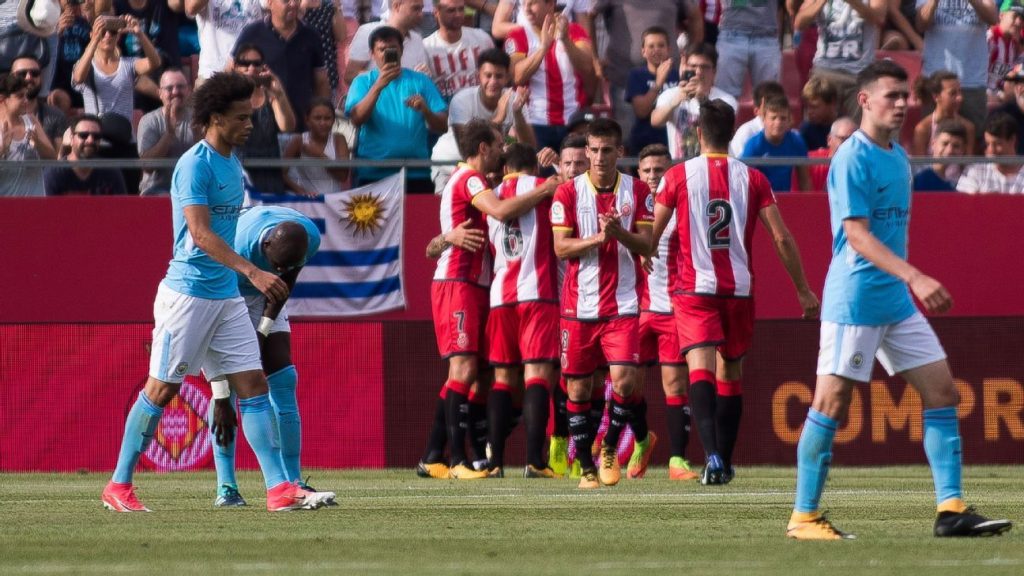UEFA has offered the Abu Dhabi investors in Manchester City and Girona divestment options to enable both to compete in next season’s Champions League by complying with integrity rules for teams with the same parent company.
Girona’s remarkable season guarantees it a top-four finish in Spain’s La Liga and a place amongst Europe’s elite next season for the first time in their history.
While the City Football Group (CFG) is not the majority shareholder of Girona, UEFA’s Financial Control Body (CFCB) says that if a party “holds 30 per cent or more of the club’s total shares, the shareholders’ or members’ voting or economic rights”, this constitutes “the capacity to exercise a decisive influence in the decision-making of a club”. The CFG holds 47% of Girona.
If a proposal is not submitted by June 3 to comply with UEFA’s rules, one of the two clubs, most probably Girona, will be demoted to the Europa League. The team finishing higher in its domestic league takes priority.
To overcome the economic disadvantage of a hasty share sale, the CFCB has proposed a temporary option of the CiFG selling its shares to an independent third party that reduces its ownership stake to below 30% or transferring all shares in one club to a blind trust overseen by a panel appointed by UEFA.
Manchester City and Girona have been under the radar of European football’s regulatory body since the start of the season after it was deemed the CFG had “decisive influence” over both clubs because of its minimum 30% shareholding in both, and more so, because of the clubs’ transfer dealings this season.
Three key players were either loaned or sold via Manchester City’s influence, including Brazilian star Sávio who has been one of the best players in La Liga this season.
CFG nest of football clubs is among the largest multi-club groups, reflecting a global trend that UEFA has warned may threaten the integrity of the soccer industry.
Critics argue that it could lead to collusion in games and the transfer market, allowing top-tier clubs to distribute and obscure their costs to meet financial monitoring regulations.

